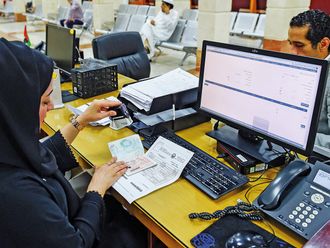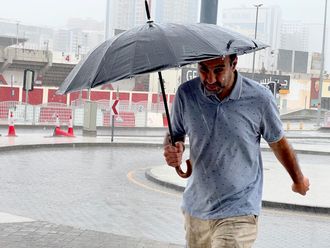Abu Dhabi Although the UAE’s contribution to global carbon emissions is about 0.2 per cent, the nation is taking all measures to minimise the emissions, officials said here yesterday.
However, the UAE and especially Abu Dhabi, have been dubbed as one of the largest contributors of carbon emissions, based on the per-capita emissions — about 37 tonnes. Although this high figure is due to the small population in the emirate, the authorities have stepped up their efforts to minimise the emissions.
The Environment Agency – Abu Dhabi (EAD) gathered its government partners in a workshop yesterday (Tuesday) to discuss how best to adapt to and mitigate the effects of climate change in Abu Dhabi.
The stakeholders discussed developing the emirate’s High Level Strategy and Action Plan for Climate Change Mitigation and Adaptation for 2014-2018. This is in line with the emirate’s plan, which is being supervised by the General Secretariat of the Executive Council of the emirate of Abu Dhabi.
During the workshop, the priorities for climate change mitigation were outlined. The priorities will be to implement policies to reduce greenhouse gas emissions from human activities and natural systems, as well as enhance mechanisms to remove already existing greenhouse gases.
EAD, as the government entity mandated with leading efforts to fulfil the objectives set out in the government’s Environment 2030 Vision, is prioritising the adaption and preparation for potential climate change issues on Abu Dhabi.
Dr Mohammad Yousuf Al Madfaei, Executive Director of the Integrated Environment Policy and Planning Sector at EAD, said: “As Abu Dhabi continues to rapidly develop, implementing effective environmental regulations and policies remains a priority to ensure that the environment is not compromised in the process. EAD and its partners are supporting the UAE to comply with its commitments to international legislation and regulations when it comes to rising to the climate change challenge.”
Although Abu Dhabi is concerned about its carbon emissions, at the same time certain practical realities have to be recognised as well, Al Madfaei told Gulf News on the sidelines of the workshop. “We are living in a hot climate so we need air-conditioning and we don’t have natural water resources that demands producing water by desalination. However we are trying to minimise the carbon emissions caused by these sectors,” he said.
Regulations to minimise emissions caused by air-conditioners and initiatives for desalination using renewable energy are some of the efforts in that direction, the official said.
During the workshop, the participants agreed on the key elements and scope of the strategy, the guiding principles, targets and action plan.
The workshop was attended by nearly 60 senior representatives from entities such as Abu Dhabi National Oil Company (Adnoc), Abu Dhabi Water and Electricity Authority (ADWEA) and its subsidiaries, Masdar, the Regulation and Supervision Bureau (RSB), the Department of Municipal Affairs (DMA) and the Municipalities, Urban Planning Council (UPC), Abu Dhabi Department of Economic Development (ADDED), Department of Transport (DoT), Abu Dhabi Food Control Authority (ADFCA), Centre of Waste Management – Abu Dhabi (CWM), Ministry of Energy, Ministry of Environment and Water, Ministry of Foreign Affairs, IRENA and the Emirates Wildlife Society - World Wide Fund for Nature (EWS-WWF).












